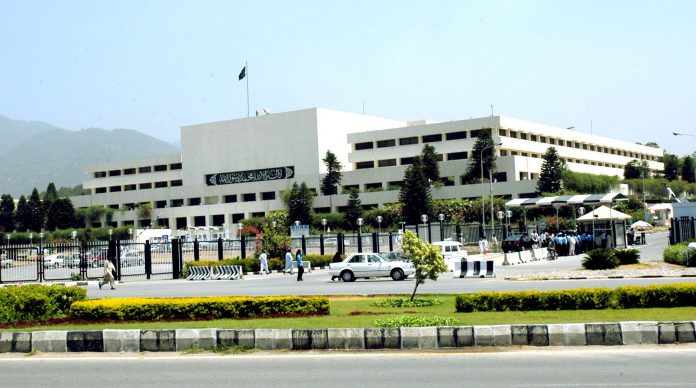The National Assembly Standing Committee on Commerce on Monday discussed a wide range of issues, from car import regulations to the creation of district-level chambers in Karachi, as members sought ways to balance trade, industry, and business facilitation.
Committee members first heard concerns from the motor vehicle import sector. It was argued that the Engineering Development Board (EDB), whose primary role relates to manufacturing, should not be tasked with licensing commercial imports. Members recommended assigning this responsibility to the Ministry of Commerce.
Lawmakers stressed that while ensuring fair competition between new and used vehicles is necessary in line with global practice, allowing unrestricted commercial imports could pressure foreign exchange reserves and undermine local industry.
The committee was also informed that Karachi has more than 350,000 registered businesses, and setting up district chambers would decentralise representation, improve facilitation, and expand the tax base.
Members across party lines expressed support for the idea, though they agreed the Karachi Chamber of Commerce and Industry (KCCI) must be given an opportunity to share its stance.
The NA Secretariat noted that the framework for chambers has evolved, with women’s chambers introduced through amendments in 2006 and 2009, while the Companies Act, 2013, governs current requirements. Members observed that centralisation with KCCI has created challenges, forcing many entrepreneurs to travel long distances to access services.
Committee chairman MNA Muhammad Jawed Hanif Khan directed the Director General of Trade Organisations (DGTO) to invite KCCI representatives to the next session. He underlined that while the committee supports district chambers in principle, a final decision would follow KCCI’s input. Representatives of various chambers that have applied for licenses were also present to voice their concerns.
Commerce Secretary briefed the committee on potential policy measures, including limits on the age of imported vehicles, tariff adjustments, environmental compliance rules, and the consolidation of existing import schemes.
After deliberations, the committee decided to refer the matter to the Ministry of Industries for detailed policy advice, particularly on the implications of electric vehicle imports. The ministry has been instructed to present its recommendations at the next session.




